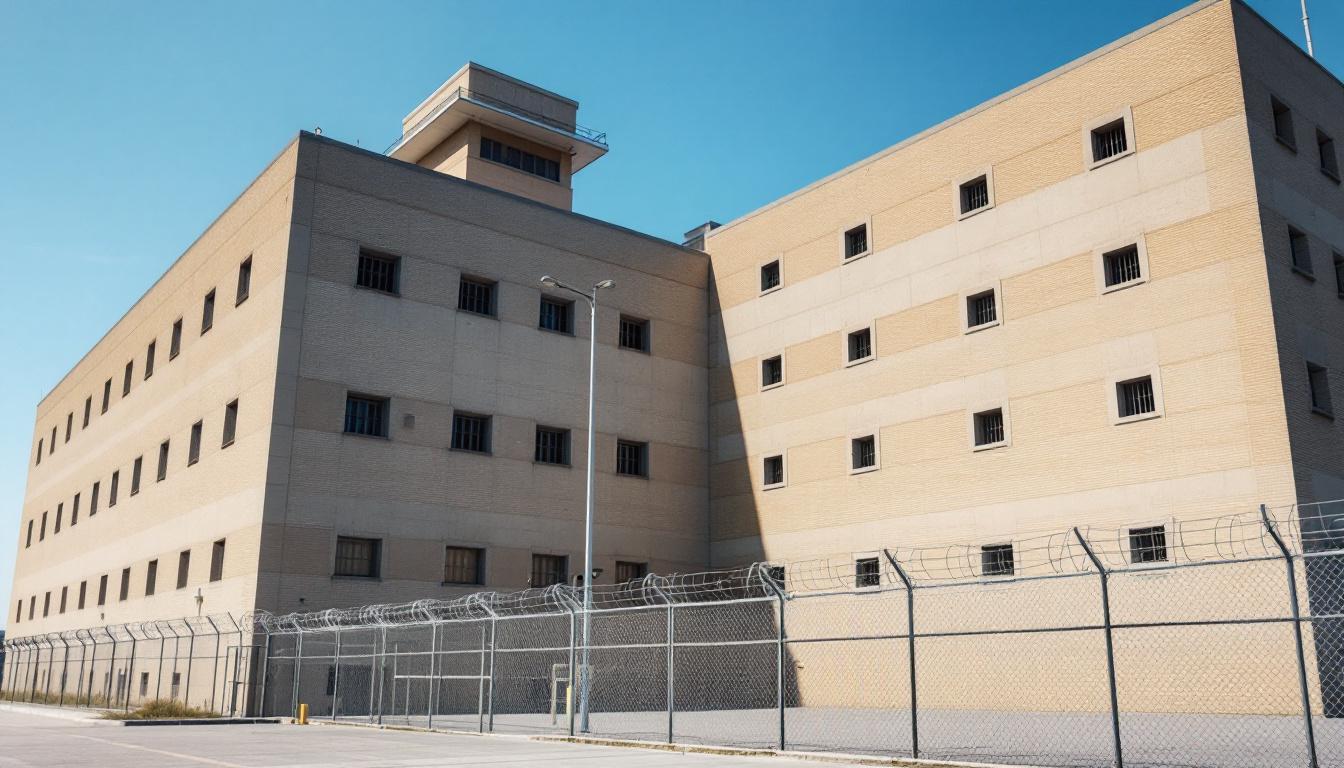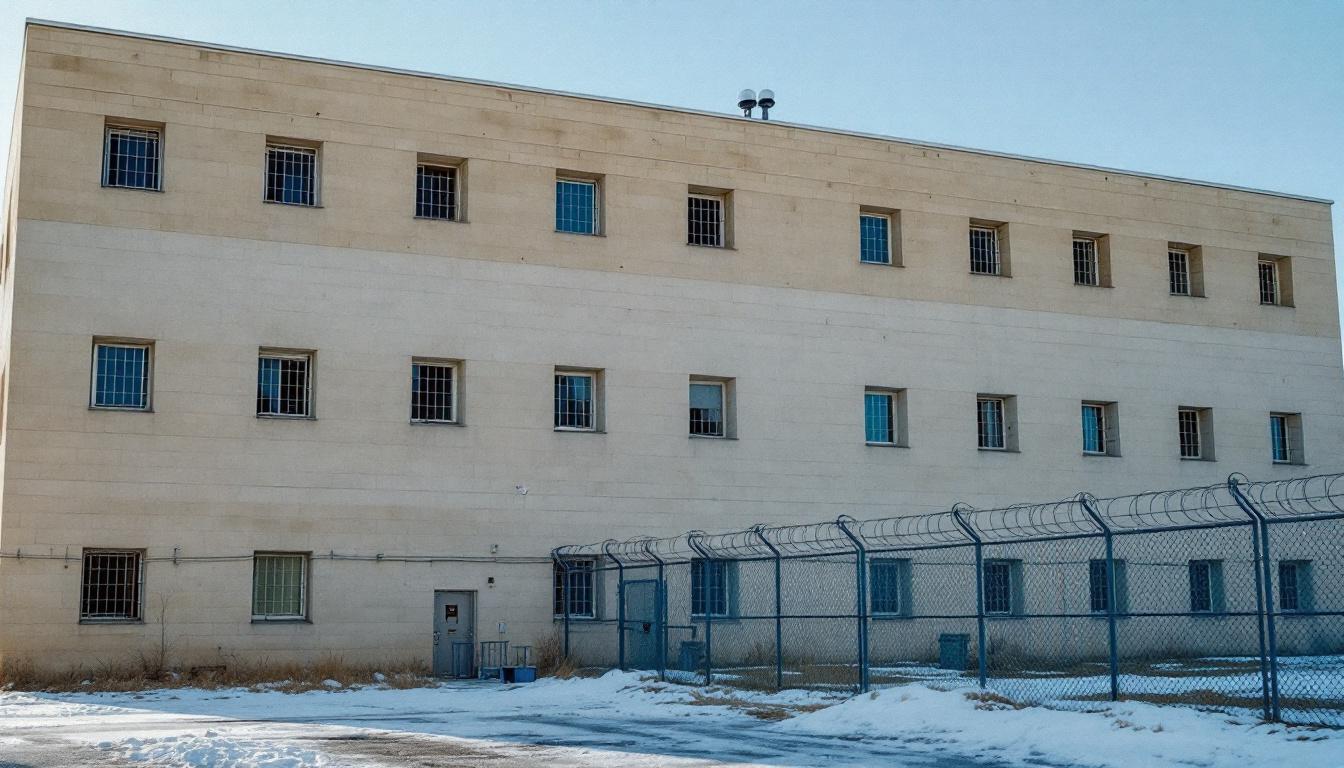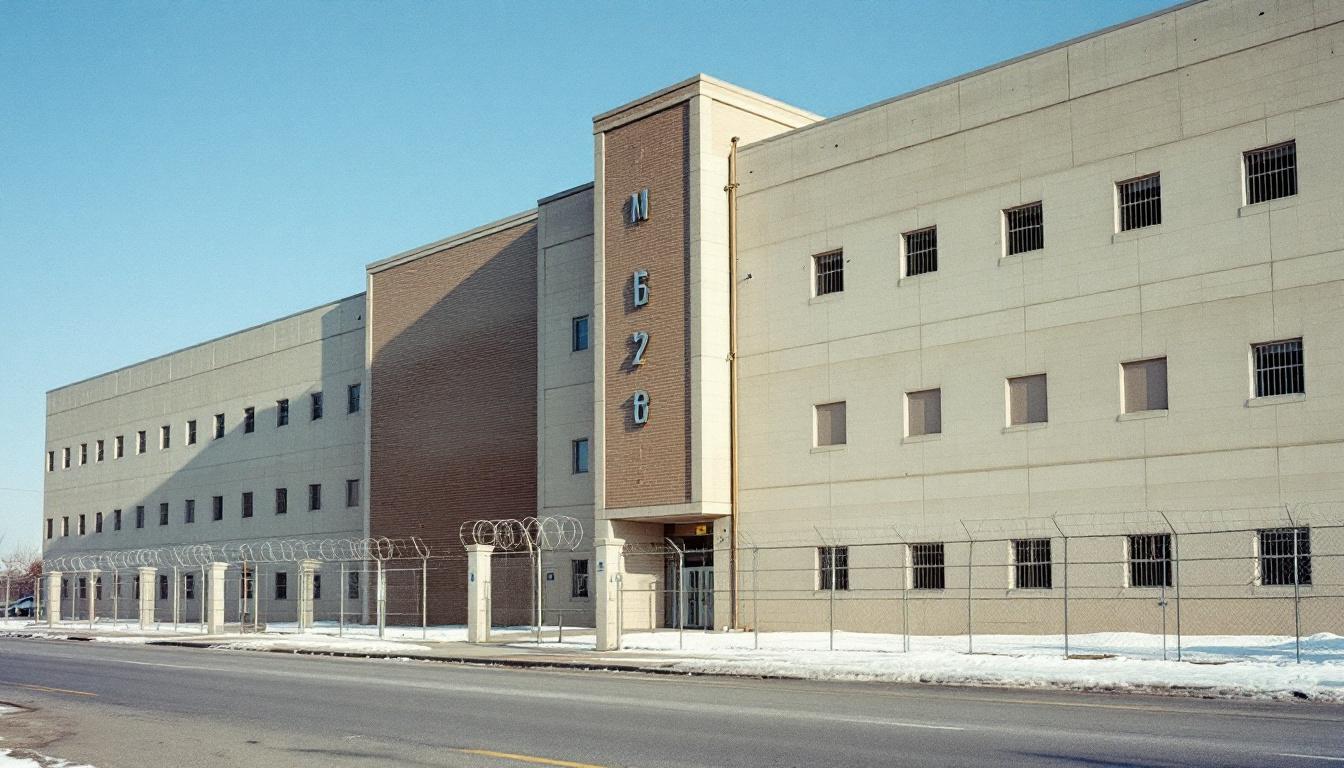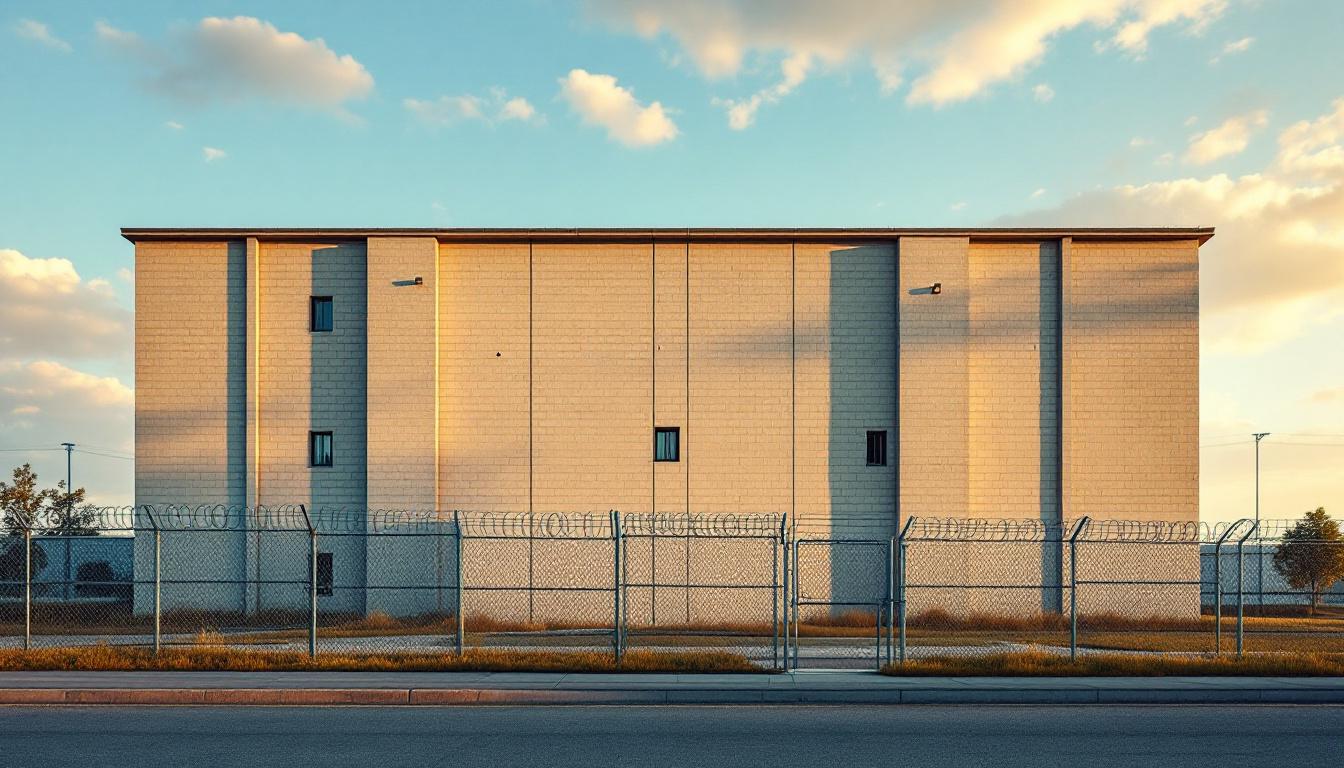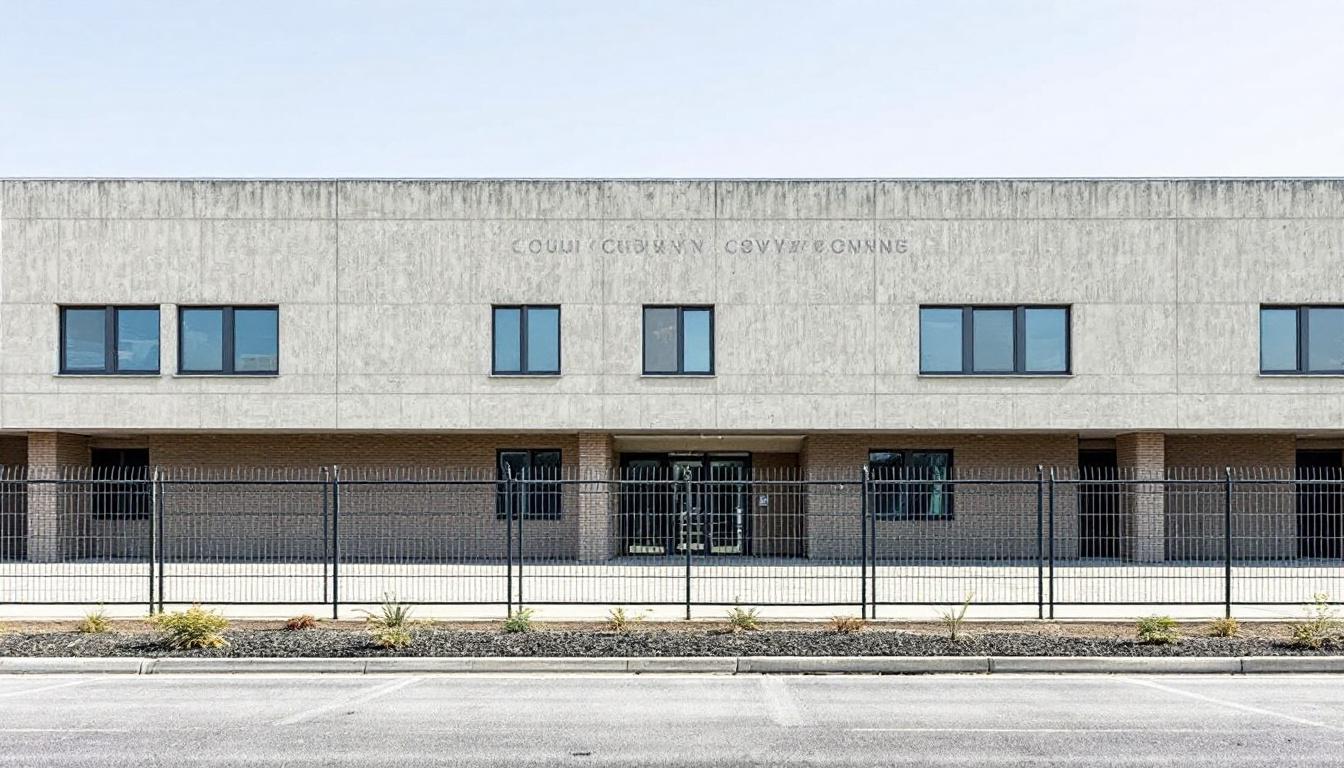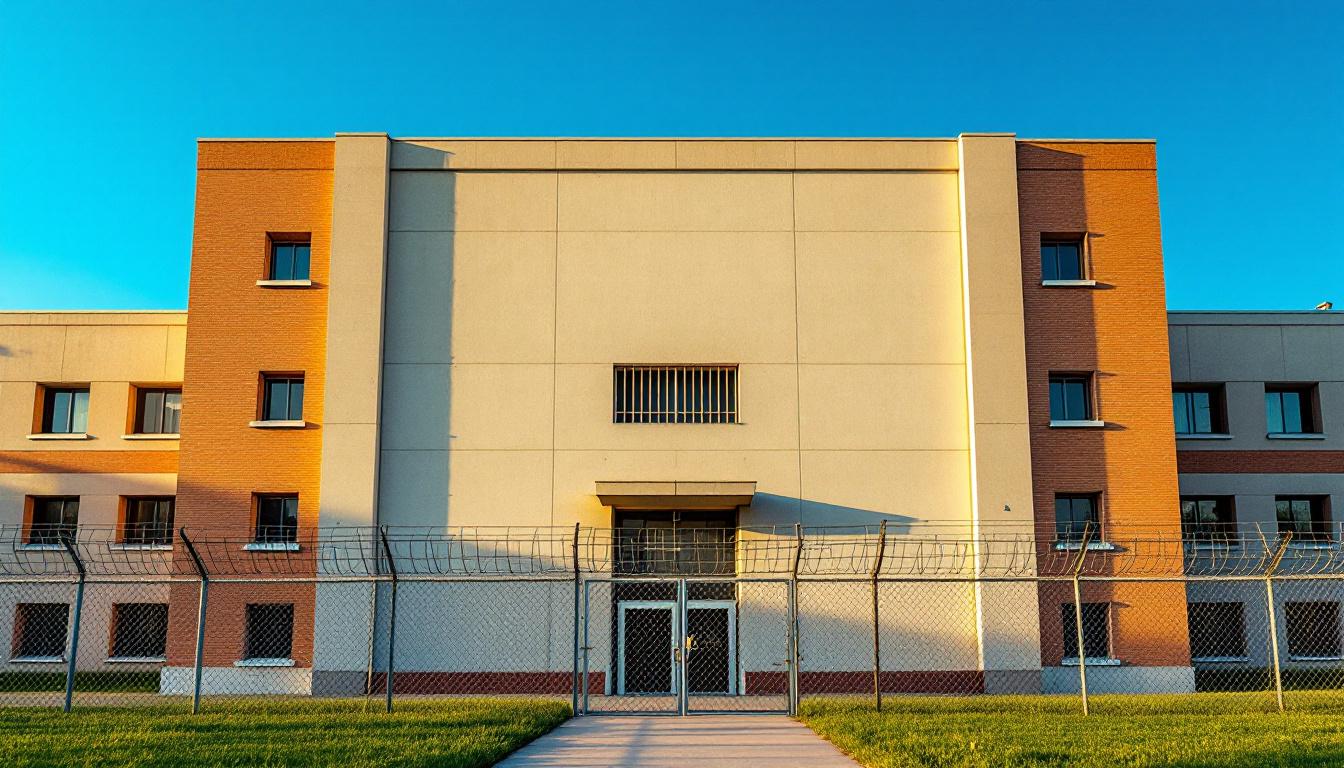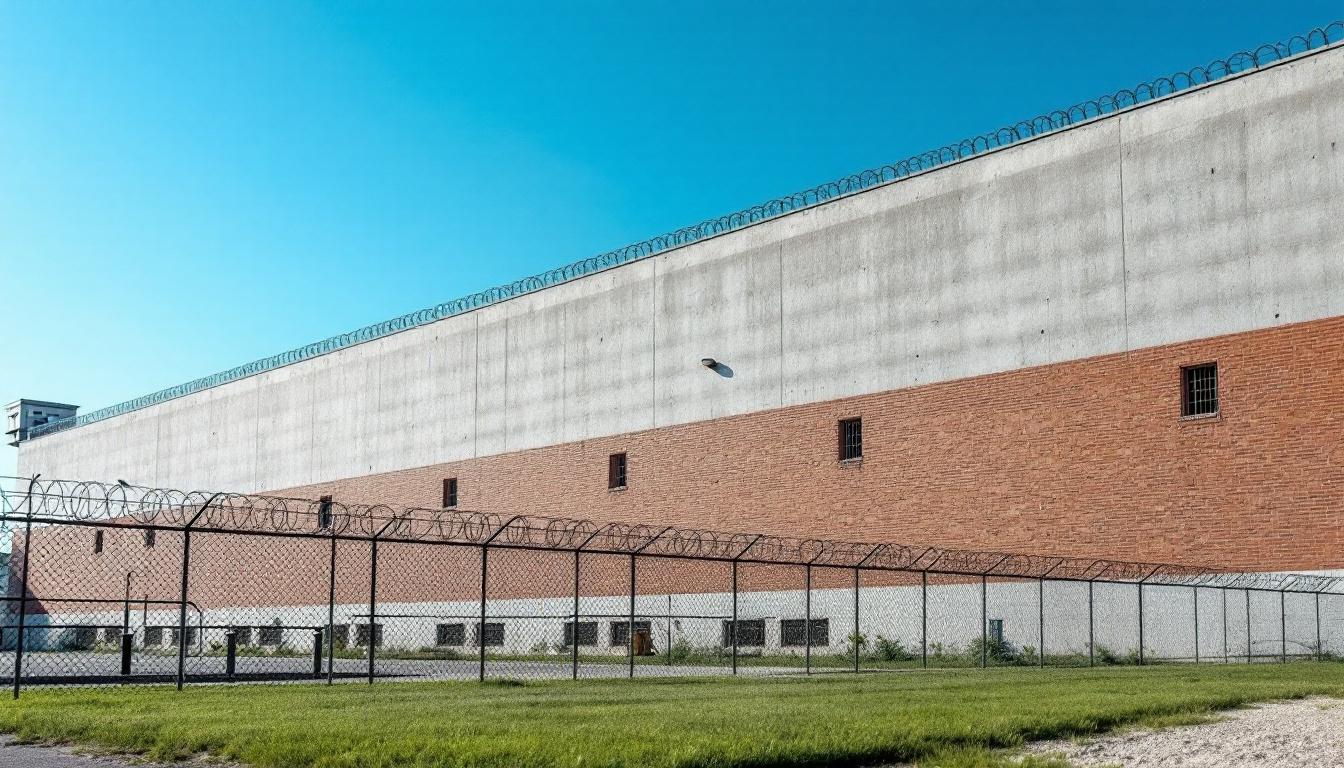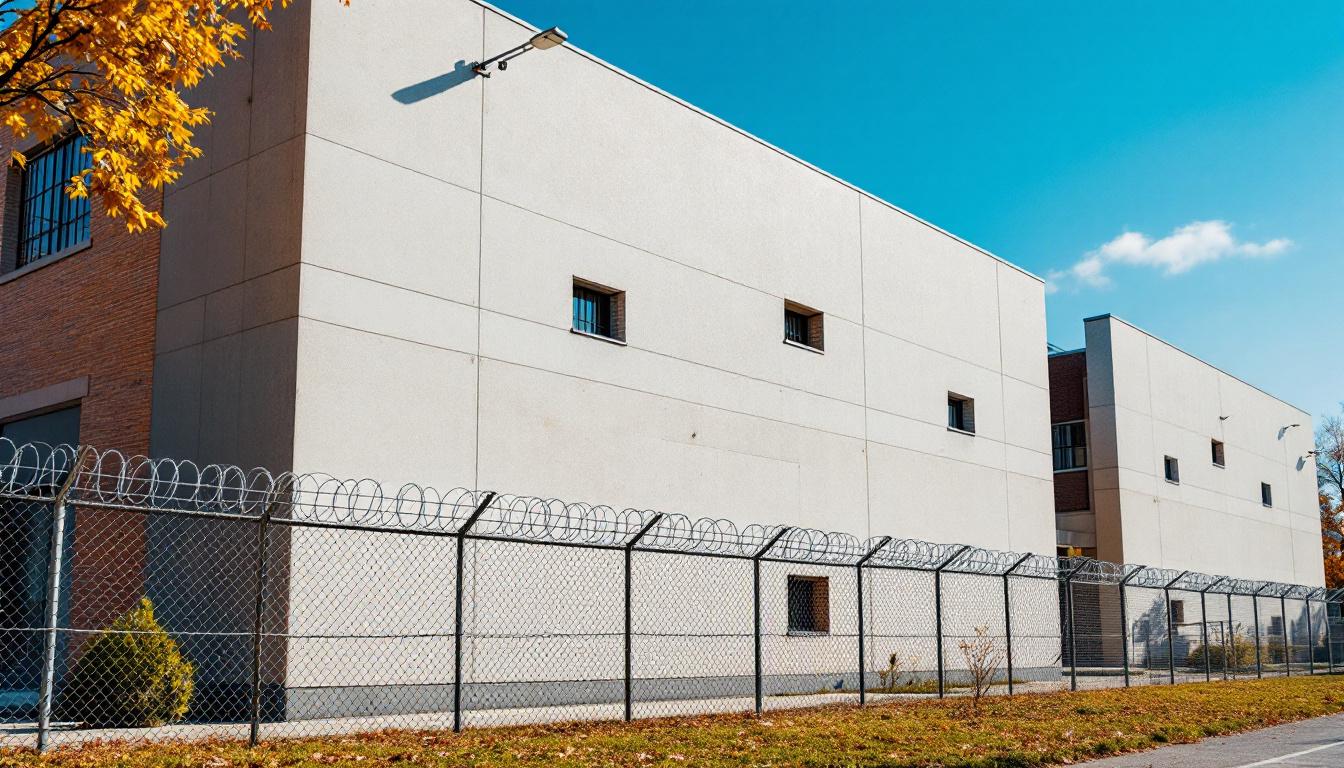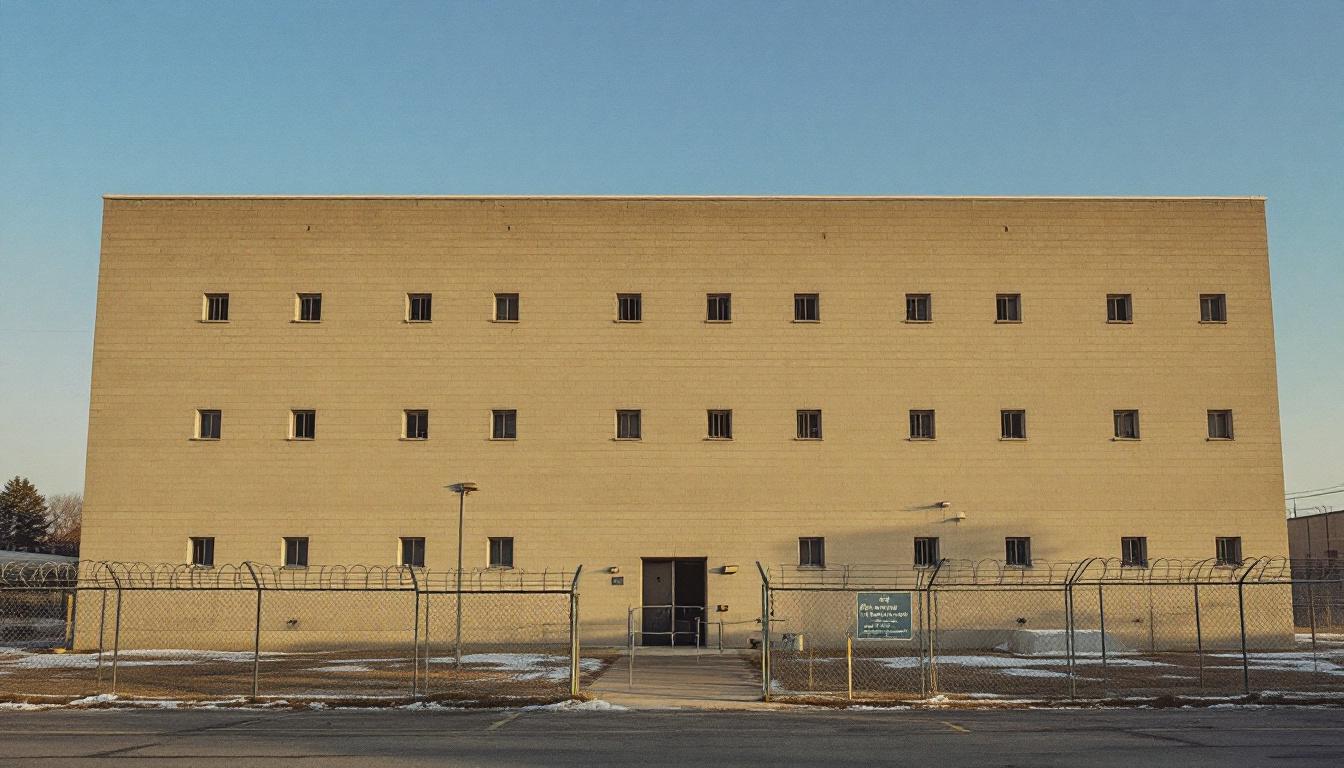
Quick Navigation
How to contact an inmate at Clinton County Sheriff's Office
This comprehensive guide will walk you through how to connect with an inmate at Clinton County Sheriff's Office. Follow the steps below to find an inmate and send letters and photos:
- Search for the inmate using our search tool below
- Create your account or log in to Penmate
- Write your message (up to 6,000 characters)
- Send instantly - inmates receive printed copies daily
Find an Inmate
Search for an inmate to start communicating today
Tip: You can search by first name, last name, or inmate ID number
To contact a person at Clinton County Sheriff's Office start by searching for the person on the official facility website. Perform a search by following these steps:
- Step 1: Enter their first name and last name into the search form and click "Search"
- Step 2: Locate their inmate record
- Step 3: Write down their Inmate ID and any housing information provided
Important! Be sure to enter the person's full name. Nicknames should not be used.
How to Send Messages to Inmates

You can use your phone or computer to send emails, letters, and photos to an inmate. Messages are sent electronically to inmate tablets or kiosks at the facility. If you would like to send a message, start by searching for an inmate at Clinton County Sheriff's Office.
Sending Photos and Postcards

A great way to send love and support to a loved one at Clinton County Sheriff's Office is to send photos and postcards. It only takes a few minutes to send photos from your phone and it makes a huge difference. You can also mail postcards with words of support and inspiration, or design your own postcard for special moments like birthdays and holidays.
Important! Be sure not to send any explicit photos or they may not be approved by the facility. You can also use a photo printing app like Penmate to make sure your photos are printed at the correct size (4x6 or 3x5) and are mailed according to the rules and regulations of Clinton County Sheriff's Office.
Frequently asked questions about Clinton County Sheriff's Office
-
How long does it take to deliver a message?
If you're sending an email message your letter is usually delivered within 24-48 hours. For messages sent via mail you should expect delivery within 3-7 days. All messages will need be approved by Clinton County Sheriff's Office.
-
How much does it cost to send a message to Clinton County Sheriff's Office?
You can send a message free using your phone or mail a message via USPS for the price of a $0.60 stamp and envelope. You can also purchase credits or e-stamps from services starting at $1.99.
-
What services can I use to contact an inmate at Clinton County Sheriff's Office?
Penmate
You can use Penmate to send letters and photos to an inmate from your phone. It's an easy way to stay in touch during your loved one's incarceration. Use the inmate locator to find an inmate's location and contact information, then you can send messages within a few minutes.
Securus messaging
Securus may be another option for communicating with an inmate at Clinton County Sheriff's Office. You can create a friends and family account and purchase credits to send messages. All messages will be reviewed and must be approved by the facility.
JPay
Some county jails and state prisons may support sending messages with JPay. You must register an account with the system, find your loved one, and purchase stamps to send messages. For some locations you can also attach photos.
Smart Jail Mail
You may also check if Smart Jail Mail is available at Clinton County Sheriff's Office. Smart Jail Mail is operated by Smart Communications and has contracted with some state and county jails. After purchasing credits, your messages and photos are sent to the facility, printed out, and then handed out to your loved one.
-
What is the mailing address of Clinton County Sheriff's Office?
Mailing address:
Clinton County Sheriff's Office
1645 Davids Dr
Wilmington, OH 45177
Phone: (937) 382-1611 -
What are the visiting hours at Clinton County Sheriff's Office?
Visiting hours at Clinton County Sheriff's Office vary by housing unit and security level. Generally, visits are scheduled on weekends and holidays, with some facilities offering weekday visits. Contact the facility directly at (937) 382-1611 or check their website for the current visiting schedule. Visits typically last 30-60 minutes and must be scheduled in advance.
-
What items are prohibited when sending mail to Clinton County Sheriff's Office?
Prohibited items typically include: cash, personal checks, stamps, stickers, glitter, glue, tape, staples, paperclips, polaroid photos, musical or blank greeting cards, hardcover books, magazines with staples, and any items containing metal or electronics. Only send letters on plain white paper with blue or black ink. Photos must be printed on regular photo paper (no Polaroids). Always check with Clinton County Sheriff's Office for their specific mail policies.
-
How do I send money to an inmate at Clinton County Sheriff's Office?
You can send money to an inmate at Clinton County Sheriff's Office through several methods: 1) Online using JPay, Access Corrections, or the facility's approved vendor, 2) Money orders mailed directly to the facility with the inmate's name and ID number, 3) Kiosks located in the facility lobby, or 4) Over the phone using a credit or debit card. Fees vary by method, typically ranging from $2.95 to $11.95 per transaction.
-
Can I schedule a video visit with an inmate at Clinton County Sheriff's Office?
Many facilities now offer video visitation as an alternative to in-person visits. At Clinton County Sheriff's Office, video visits may be available through services like Penmate, Securus Video Connect, GTL, or ICSolutions. Video visits typically cost $10-20 for 20-30 minutes and must be scheduled in advance. You'll need a computer or smartphone with a camera and reliable internet connection. Contact the facility for their specific video visitation policies and approved vendors.
-
What identification do I need to visit an inmate at Clinton County Sheriff's Office?
All visitors must present valid government-issued photo identification such as a driver's license, state ID, passport, or military ID. Minors must be accompanied by a parent or legal guardian who can provide the minor's birth certificate. Some facilities require visitors to be on the inmate's approved visitation list, which may require a background check. Contact Clinton County Sheriff's Office for specific ID requirements and visitor approval procedures.
-
How can I find out an inmate's release date?
To find an inmate's release date at Clinton County Sheriff's Office, you can: 1) Use the online inmate search tool if available, 2) Call the facility's records department, 3) Contact the inmate's case manager or counselor, or 4) Have the inmate provide this information during a call or visit. For privacy reasons, some facilities only release this information to immediate family members.
Facility Overview
Contact Information
Clinton County Sheriff's Office1645 Davids Dr
Wilmington, OH 45177
Phone: (937) 382-1611
Official Website

About Clinton County Sheriff's Office
Nestled in the heart of Lebanon, Ohio, the Clinton County Jail, OH serves as a cornerstone facility within the region's correctional network, bridging the gap between public safety and community rehabilitation efforts. This OH correctional facility operates with a philosophy that balances necessary security measures with meaningful opportunities for personal growth, recognizing that effective corrections work requires both accountability and hope for positive change.
The facility typically emphasizes accessible programming that connects residents with educational resources and skill-building opportunities, often working alongside local organizations to provide services that extend beyond basic incarceration. Residents services may include literacy programs, substance abuse counseling, and vocational training initiatives designed to prepare individuals for successful reintegration into the broader Lebanon community. The county jail generally maintains partnerships with regional service providers, creating pathways for continued support that begin during incarceration and extend into post-release planning.
Through its community-centered approach, the facility often serves as a bridge between residents and the resources available throughout Clinton County, fostering connections that can prove vital for long-term rehabilitation success. This midwest region correctional facility typically operates with an understanding that effective public safety emerges from programs that address underlying issues while maintaining appropriate security protocols, creating an environment where both staff and residents can work toward positive outcomes within the broader Lebanon community framework.
Programs & Services
Educational initiatives form the cornerstone of Clinton County Jail's rehabilitation approach, with residents typically accessing basic literacy courses, GED preparation, and computer skills training. These academic opportunities often include structured classroom settings where participants work toward completing their high school equivalency while developing essential digital literacy skills. The facility may deliver educational services through certified instructors who focus on individualized learning plans tailored to each resident's academic background and goals.
Vocational training initiatives complement the educational foundation by providing residents with marketable job skills for successful reentry. The facility often includes hands-on training in areas such as forklift operation, which may lead to industry-recognized certifications upon completion. Moreover, grounds maintenance programs typically allow residents to develop landscaping and facility upkeep skills while contributing to the jail's daily operations. These vocational opportunities may deliver practical experience that directly translates to employment prospects in the community.
Support services initiatives address the underlying factors that often contribute to incarceration through comprehensive recovery programs and community resource connections. The facility typically offers substance abuse counseling and treatment services designed to help residents develop coping strategies and maintain sobriety. Moreover, community resource connections may include assistance with housing placement, employment referrals, and social services coordination to support successful reintegration. These therapeutic initiatives often focus on building life skills and establishing support networks that extend beyond the period of incarceration.
Daily Life & Visitation
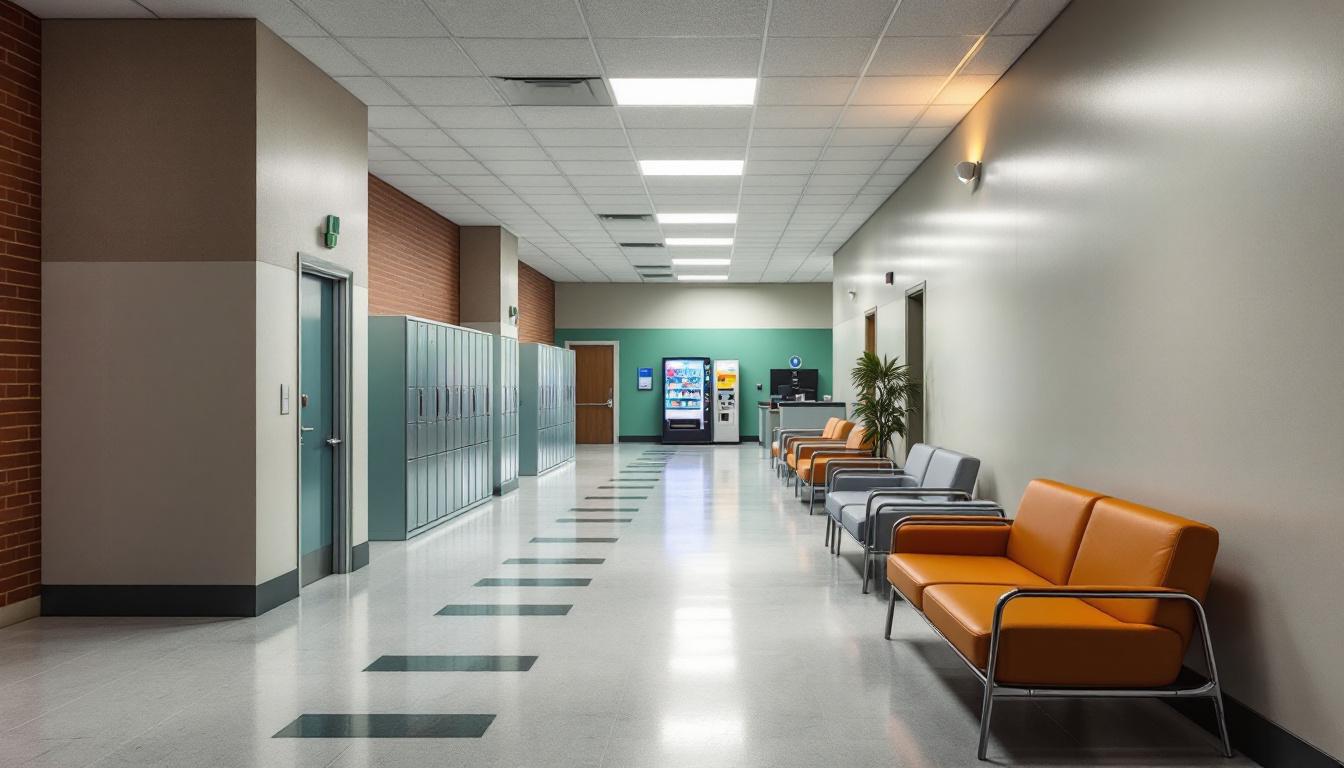
Structured daily schedules currently anchor life for residents, with consistent wake-up times, meal periods, and programming blocks that continues to provide predictability in an otherwise uncertain environment. The routine typically begins early in the morning with count procedures, followed by breakfast service and work assignments or educational programming. This framework generally delivers stability through regular meal times, recreation periods, and scheduled activities that help residents maintain a sense of normalcy.
Living accommodations at the facility usually consist of shared housing units where residents may have access to basic amenities including bedding, personal hygiene items, and limited personal property storage. Meals are typically served in designated dining areas at scheduled times, with menus that generally meet nutritional standards and accommodate basic dietary restrictions. Moreover, residents often have access to commissary services where they can purchase additional food items, personal care products, and writing materials using funds from their accounts.
Recreation opportunities typically include indoor and outdoor exercise periods, television viewing in common areas, and access to library materials or educational resources. Whereas daily routines provide structure, family connections remain important through scheduled visitation periods and phone call privileges that generally operate within established timeframes. Work assignments within the facility may include kitchen duties, cleaning responsibilities, and maintenance tasks that often provide residents with productive activities while contributing to facility operations. Programming schedules usually incorporate educational classes, counseling sessions, and other structured activities designed to support personal development during incarceration.
Ready to Connect?
Start communicating with your loved one today
Search for an Inmate
